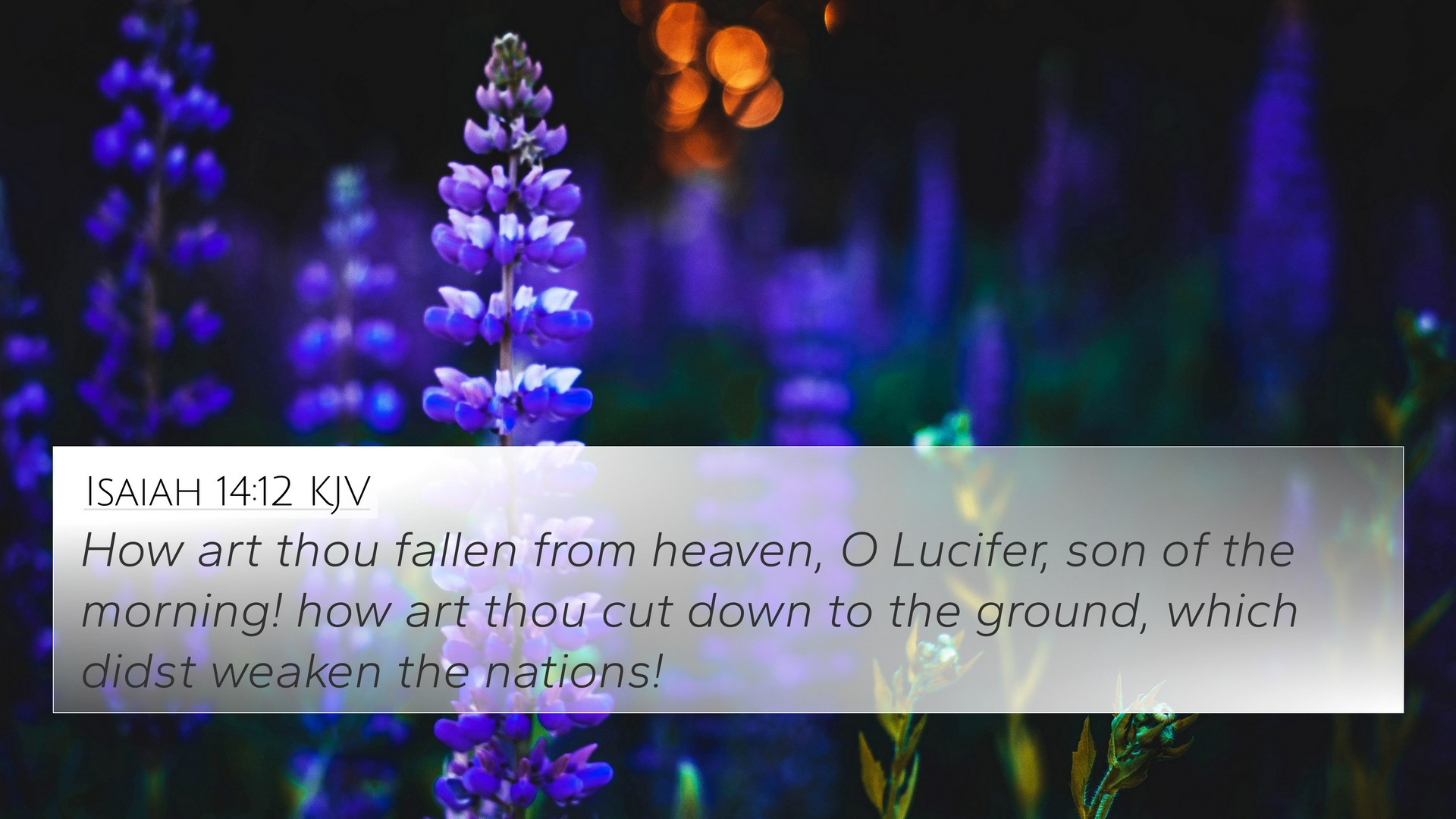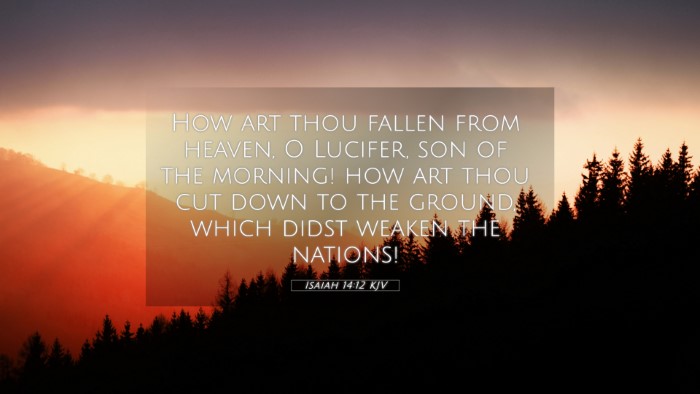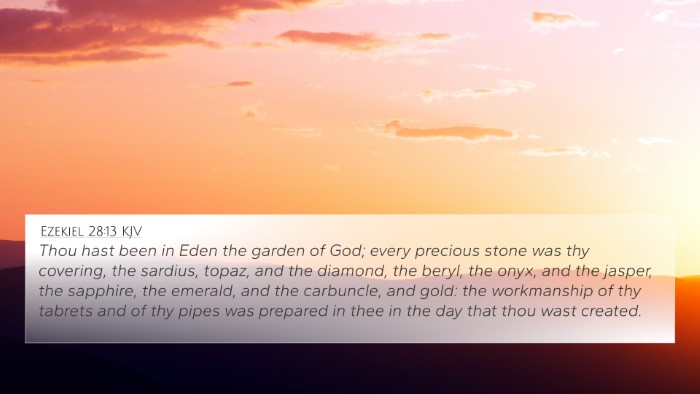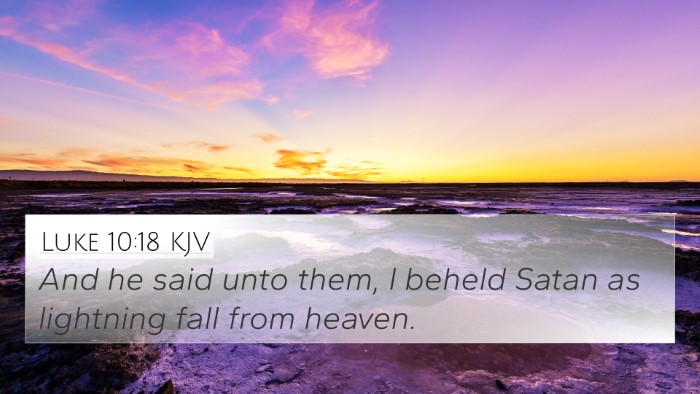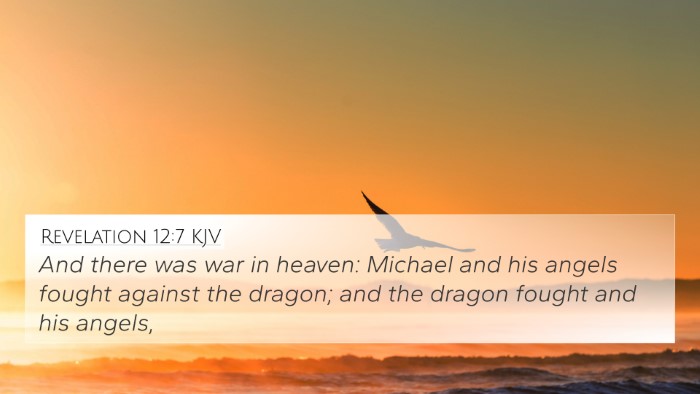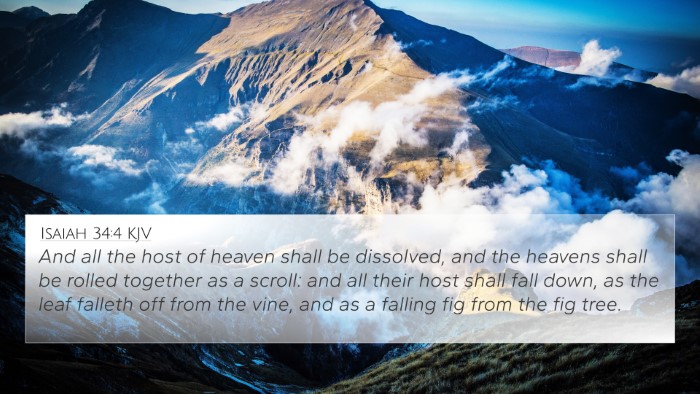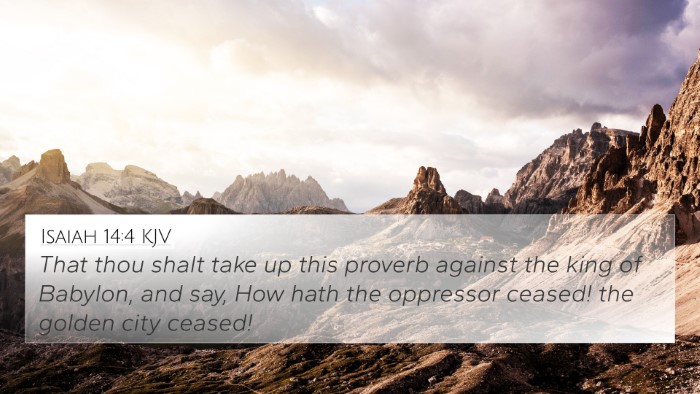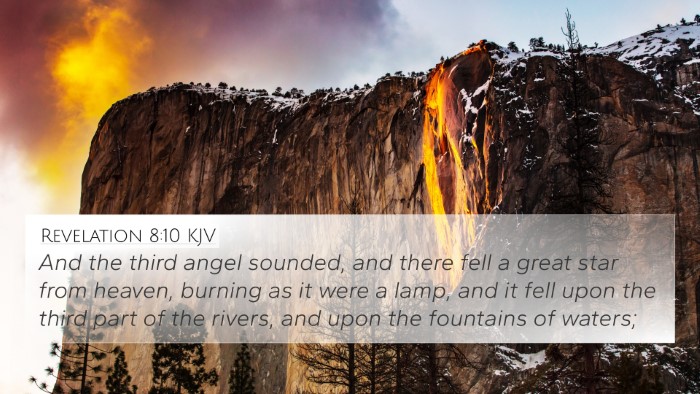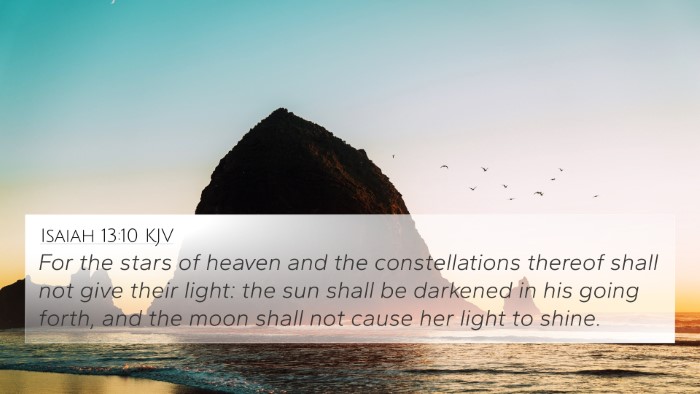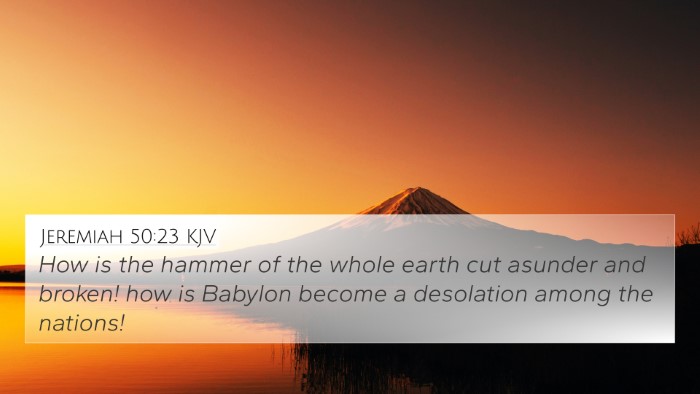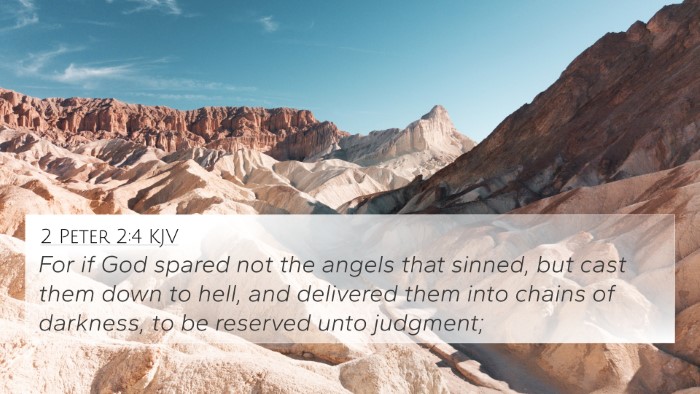Understanding Isaiah 14:12
Isaiah 14:12: "How art thou fallen from heaven, O Lucifer, son of the morning! how art thou cut down to the ground, which didst weaken the nations!"
Overview of Isaiah 14:12
This verse from Isaiah describes the fall of Lucifer, often interpreted as a reference to Satan. It marks a significant moment where pride leads to downfall, emphasizing the themes of humility versus pride and the consequences of attempting to elevate oneself above God.
Commentary Insights
-
Matthew Henry:
Henry highlights Lucifer's initial glory and subsequent humiliation. He interprets this verse as a warning against pride, illustrating how high places can lead to a catastrophic fall. Henry notes that Lucifer sought to exalt himself above God, which resulted in his expulsion from Heaven.
-
Albert Barnes:
Barnes emphasizes the symbolic representation of Lucifer as the king of Babylon in this passage. He discusses the connection between earthly rulers who, like Lucifer, aspire to divine status, and their inevitable downfalls due to their hubris. Barnes urges readers to recognize the ultimate authority of God over earthly powers.
-
Adam Clarke:
Clarke provides an in-depth analysis of the word "Lucifer," discussing its etymology and meaning as "morning star." He connects this to the idea of light and enlightenment, which is juxtaposed with the darkness of sin and disobedience, portraying Lucifer's fall as a tragic reversal from glory to shame.
Thematic Connections
Isaiah 14:12 not only serves as a narrative of Lucifer's fall but also connects to broader Biblical themes:
- Pride and Fall: The verse warns against the dangers of pride, echoing Proverbs 16:18: "Pride goes before destruction." This theme recurs throughout scripture, adding depth to the understanding of human ambition and divine sovereignty.
- God's Sovereignty: It illustrates God's ultimate control over the affairs of nations and the futility of opposition against His will, akin to Psalm 46:10, "Be still, and know that I am God."
- Light and Darkness: The mention of "morning star" emphasizes the contrast between light and darkness, a motif also present in John 1:5, "The light shines in the darkness, and the darkness has not overcome it."
- Judgment: This passage serves as a warning of divine judgment, similar to Revelation 20:10, which details the final fate of the devil.
Cross References
Isaiah 14:12 relates to several other Biblical texts, enhancing its meaning through scriptural cross-referencing:
- Luke 10:18: "And he said unto them, I beheld Satan as lightning fall from heaven." This verse directly echoes the theme of the fall of Satan from heaven.
- Ezekiel 28:17: "Thine heart was lifted up because of thy beauty, thou hast corrupted thy wisdom by reason of thy brightness." This illustrates the pride that leads to downfall.
- 2 Peter 2:4: "For if God spared not the angels that sinned, but cast them down to hell..." connects directly to the judgment of fallen angels.
- Revelation 12:9: "And the great dragon was cast out, that old serpent, called the Devil, and Satan..." provides an apocalyptic view of Lucifer's fall.
- Isaiah 47:1: "Come down, and sit in the dust, O virgin daughter of Babylon..." ties Babylon's fall to that of Lucifer, reinforcing the themes of arrogance and downfall.
- Proverbs 29:23: "A man's pride shall bring him low: but honor shall uphold the humble." This reiterates the moral teaching about pride.
- Romans 16:20: "And the God of peace shall bruise Satan under your feet shortly..." speaks of the ultimate victory over evil.
Interpretation and Application
Understanding Isaiah 14:12 encourages believers to reflect on the nature of pride and humility:
-
Personal Reflection:
Believers are called to examine their own lives for pride and self-exaltation. This verse serves as a reminder of the importance of humility and reliance on God's grace.
-
Community Insight:
The themes of pride and downfall can be applied to community dynamics, urging individuals and leaders to seek Godly wisdom and humility in their interactions.
Conclusion
Isaiah 14:12 invites readers into a deeper understanding of pride, the consequences of ambition, and the ultimate sovereignty of God. Through cross-references and an exploration of its themes, believers can gain valuable insights into their spiritual journeys, ensuring they remain grounded in humility while recognizing God's supreme authority.
Utilizing Bible Cross-References
For effective study, employing tools for Bible cross-referencing, such as a Bible concordance or cross-reference Bible study guides, can enhance one’s understanding of themes and connections between scriptures. Engaging with cross-referenced themes enriches one's appreciation of Biblical narratives and doctrines.
